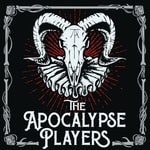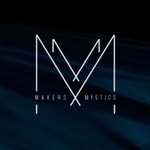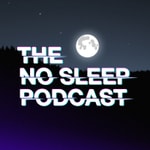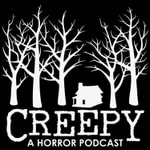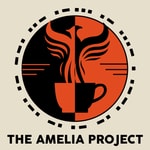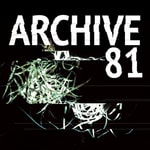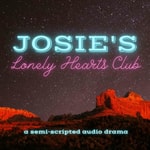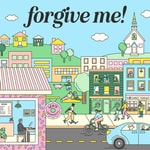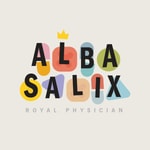How I Make Music – Détails, épisodes et analyse
Détails du podcast
Informations techniques et générales issues du flux RSS du podcast.
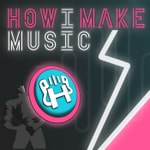
How I Make Music
John Bartmann
Fréquence : 1 épisode/25j. Total Éps: 54

Classements récents
Dernières positions dans les classements Apple Podcasts et Spotify.
Apple Podcasts
🇬🇧 Grande Bretagne - musicCommentary
11/06/2025#62🇨🇦 Canada - musicCommentary
29/09/2024#95🇨🇦 Canada - musicCommentary
28/09/2024#71🇨🇦 Canada - musicCommentary
27/09/2024#50
Spotify
Aucun classement récent disponible
Liens partagés entre épisodes et podcasts
Liens présents dans les descriptions d'épisodes et autres podcasts les utilisant également.
See all- https://johnbartmann.com
66 partages
- https://johnbartmann.com/
60 partages
- https://ameliapodcast.com
42 partages
- https://patreon.com/howimakemusic
71 partages
- https://twitter.com/barbarossaphone
3 partages
- https://twitter.com/ianridenhour
2 partages
- https://twitter.com/iamdanielbirch
2 partages
Qualité et score du flux RSS
Évaluation technique de la qualité et de la structure du flux RSS.
See allScore global : 48%
Historique des publications
Répartition mensuelle des publications d'épisodes au fil des années.
111 Where the Stars Fell - Newt Schottelkotte - Here With You
jeudi 29 décembre 2022 • Durée 21:03
Join Nashville-based singer and audio drama creator Newt Schottelkotte in a musical trip to a small town with some big secrets. Where the Stars Fell is a semi-serialized audio fiction supernatural fantasy and part of the Fable and Folly network. In this episode, hear touching stories about how Newt wrote and performed the country-folk song ‘Here With You’ as an outro theme for episode 18 of the series. An immersive listening experience. Headphones recommended.
SHOW NOTES
Where The Stars Fell audio drama https://wherethestarsfell.com/
Newt Schottelkotte home https://newtschottelkotte.com/
Caldera Studios home https://calderastudios.me/
MUSIC CREDITS
Music: John Denver - Annie’s Song
Music: Hozier - Wasteland Baby
Music: Tyler Childers - Lady May
The Mountain Goats - It Froze Me
BECOME A PATRON
Patrons get bonus episodes, early access, full video interviews with contributors, a listing on the Wall of Fame, immersive podcast editing tutorial video livestreams and resources, access to the show’s hidden back catalog, bonus material for creating your own show and a massive thank you! Become a patron and support the composers of audio drama! https://patreon.com/howimakemusic
ABOUT THIS SHOW
Discover new fiction podcasts in an immersive, sound-designed listening experience with their music composers. In this show, we challenge audio drama music makers to break apart a song, soundtrack or composition and get into why and how it was made. Immersive listening. Headphones recommended.
Follow How I Make Music in your favorite app https://pod.link/howimakemusic
Show notes, transcripts and patron credits https://howimakemusic.com
How I Make Music is created by John Bartmann https://johnbartmann.com
Dice Tower Theater - Mike Atchley - Dark Journey
vendredi 11 novembre 2022 • Durée 26:03
Join composer and showrunner Mike Atchley in a musical trip into the skies of fantasy tabletop roleplaying game audio drama Dice Tower Theater presents: Dawn of Dragons. Young heroes bound in love and kinship are forced on a quest to discover the truth behind the magic of dragons and seek those that stole it. In this episode, hear how the epic fantasy music of Dice Tower Theater is inspired by re-constructed DnD gameplay recordings. An immersive listening experience. Headphones recommended.
SHOW NOTES
Dice Tower Theater audio series https://dicetowertheatre.com/
Good Ham Productions https://www.goodhamproductions.com/
MUSIC CREDITS
Music: Glenn Danzig - Retreat And Descent
Music: Jo Blankenburg - Garador’s Flight
Music: Richard Wagner - Ride of the Valkyries
BECOME A PATRON
Patrons get bonus episodes, early access, full video interviews with contributors, a listing on the Wall of Fame, immersive podcast editing tutorial video livestreams and resources, access to the show’s hidden back catalog, bonus material for creating your own show and a massive thank you! Become a patron and support the composers of audio drama! https://patreon.com/howimakemusic
ABOUT THIS SHOW
Discover new fiction podcasts in an immersive, sound-designed listening experience with their music composers. In this show, we challenge audio drama music makers to break apart a song, soundtrack or composition and get into why and how it was made. Immersive listening. Headphones recommended.
Follow How I Make Music in your favorite app https://pod.link/howimakemusic
Show notes, transcripts and patron credits https://howimakemusic.com
How I Make Music is created by John Bartmann https://johnbartmann.com
Hood - Samuel Pegg - A Chance To Be Free
vendredi 11 juin 2021 • Durée 10:45
Discover new audio drama by music. How I Make Music is where audio drama composers get to tell their own stories. Visit https://howimakemusic.com and subscribe in your podcast app.
TRANSCRIPT
The piece of music we're listening to in the background is called A Chance To Be Free. It's one of the themes for the audio drama soundtrack from Hood: Noble Secrets, and the whole series by Spiteful Puppet. Today, we'll break it down and get into why and how it was made. You're listening to How I Make Music, where audio drama composers gets to tell their own stories. In this show, we break apart the music of fictional podcasts and take a trip into how it was made. My name is Samuel Pegg. I'm a composer from London, United Kingdom. And this is How I Make Music. Welcome back to How I Make Music, A Chance To Be Free from the audio drama Hood by me Samuel Pegg. Thanks for listening in. Hood was the first audio drama that Spiteful Puppet had ever put together. So we were all learning really what to do. But at the same time, we didn't have any conceptions of how to do it. So maybe that was a good thing. And it's a story of while Robin Hood, but in a way that you're probably not used to hearing it. Robin Hood is not the character you expect him to be. There are quite a lot of twists along the way.
2:06 ABBEY ROAD
In London, there are just a plethora, you know, there's just a huge pool of fantastic musicians, and especially at the moment, there isn't a huge amount of work going on. So people are keen to come and record. I'm sort of classically trained, you know, playing in orchestras. But really, most of my training actually came through working with live musicians in the feature film world recording scores, the top studios in London and abroad. Next week, I'm going to go to Abbey Road to record something for an album I've written, got a string orchestra, and we've got some interesting baroque instruments as well, which will be quite fun. Oboe da caccia and oboe d'amore. They're both period instruments from I guess, the baroque period of music, so they're very old-sounding instruments. Here's a snippet of how it sounds. Yeah, it should be really fun day.
03:22 DREAMING OF ANOTHER LIFE
This piece, a chance to be three plays between a poignant dialogue between Little John and Will Scarlett. John is dreaming of a different life - an alternative life - and Will is unsure, you know, maybe we need to play it safe and keep doing what we're doing. There are three sections to the cue. But the major shift is when they decide they want to take as they put it "one last roll of the dice". And they're going to pursue a rather daring and sort of risky plan, with the aim that they might get a royal pardon and finally have a chance to live a free life with their families rather than being outlaws. Little John is really looking for this alternative life where he can be with his family. He could be dying.
04:54 SOLO CELLO
So the cue needed the emotional heart, but all honesty to it as well. It's hard to beat a solo cello. Gives it a sort of sense of gravitas. My friend, Lily Thornton just gave an absolutely beautiful performance here. Redemptive type theme. I suppose it's them just dreaming of another life. And then when there's a shift in the narrative, we bring guitars, drums and energy. Because the decision has been made that they are going to pursue this risky course of action. It's easy to write music when you have fantastic performances and an expertly written script.
06:17 FELT PIANO
A felt piano does sound a little bit different to a typical concert grand. It's basically any piano where you put a layer of felt between the strings and the hammers. Here's how it sounds. It gives you a level of intimacy you wouldn't normally get. It's almost got a ballad sound. The chords a
Hood - Samuel Pegg - Hood Theme
mercredi 14 avril 2021 • Durée 12:08
The piece of music we're listening to in the background is called Hood Theme. It's a main theme for the soundtrack from the audio drama Hood: Noble Secrets and the whole series by Spiteful Puppet. Today we'll break it down and get into why and how it was made. You're listening to How I Make Music, where audio drama composers get to tell their own stories. My name is Samuel Pegg. I'm a composer from London, United Kingdom. And this is How I Make Music. Welcome back to How I Make Music, Hood Theme from the audio drama Hood by me Samuel Pegg. Thanks for listening in. Hood is a historical audio drama with a sort of fresh twist on the Robin Hood stories that we all know. He's this kind of lone figure against his better instincts. Well, I grew up in Oxford, and I played cello and piano growing up. Played in orchestras. At the moment, I'm doing quite a lot of things for a historical theme park in Spain and France. Take a listen. It's just been really nice to record a couple of them in London and two of them in Vienna and one in Prague. Big orchestral stuff. Doing a few things at Abbey Road next week. All the musicians are so grateful for the work.
2:39 IDEAS ON HOLIDAY
I was holidaying in Cornwall right at the tip of Cornwall. It's a very kind of atmospheric place very windswept with craggy cliffs. So just walking around the coastline, exposed to the elements. And the writer of Hood sent me the script. A friend had introduced us. I basically spent the entire holiday kind of trying to form themes in my head as I walked around the Cornish coast. But it was a good place to have some headspace. Quite rare for me nowadays to have a chance to think about something like that.
3:47 INFLUENCES
I suppose one of the influences at the time was the Game of Thrones main theme, with its kind of rustic sort of, I don't know very sort of war-like feel. Another influence would have been How To Train Your Dragon with the Celtic feel. That's what I was trying to do is try and find my own fantasy world for this story.
4:48 BREAKDOWN
For the Hood theme, I wanted to convey a sort of rustic seriousness with the adrenaline of running through the forest evading the law and I came across a sound palette that I thought was interesting with various masculine and muscular brass...strings...heroic. Then lots of guitar, mandolin, ukulele, and they were performed by my friend Andrew Simmons. With lots of percussive elements. Tuned metals to give you this sense of, I guess the countryside really. What you're listening to now is a waterphone. It might be surprising to hear it's a percussion instrument. Very spooky sound. I found it really conveyed a sense of being in the dark woods with the shadows closing in.
6:22 CELLO
My good friend Lily Thornton, who's a fantastic cellist now based in Melbourne, came over to my place and recorded the theme. Absolutely phenomenal player. And it gives it a real unique character and a sort of soul.
7:20 AEOLIAN
The Hood theme is rooted in Aeolian mode, which gives it a Celtic rustic sound. Rooted in D. The tune itself just keeps rising up until it gets dragged back down to its root key.
8:18 MARION
I don't think any of these parts I've sent you will have Marion in them. Because she's actually like an anti-character really. As you learn more about her, she's actually not a good person.
8:46 STRANGE TIME
Here is another piece from a different episode of the same series. This has a sort of lilting time signature in 5/8. Take a quick listen. This was my first audio drama that I'd worked on my background having been in feature film, I really just treated it much like that.
9:43 OUTRO
That's about it for this week's episode. We'll listen to the full composition in just a moment. But before we do that, thank you for listening to How I Make Music. C
1865 - Lindsay Graham - Theme from ‘1865’
mercredi 7 avril 2021 • Durée 16:36
The piece of music we're listening to in the background is the outro theme music from the historical audio drama 1865. Today, we'll break it down and get into why and how it was made. You're listening to How I Make Music, where the musicians of audio drama get to tell their own stories. This show will break apart a song soundtrack or composition and investigate the insights into how it was made. My name is Lindsay Graham. I'm a composer, sound designer and podcast host and producer from the United States. And this is How I Make Music. Welcome back to How I Make Music, “1865”, by me, Lindsay Graham, thanks for listening in. "1865" is a historical audio drama that tells the story of the aftermath of President Lincoln's assassination. The protagonist is largely forgotten in American history. He was the Secretary of War at the time. He really rose to the occasion, and tried to put the country back together in this fraught period of American history that still reverberates today.
2:28 INFLUENCES
When I was thinking about a civil war themed show, you immediately think of the Ken Burns documentary and those in those fiddles. And while violin is the lead instrument, I wanted the rest of the score to sound nothing like what you would expect a civil war documentary to sound like. And I was inspired by Cliff Martinez. His score for The Knick, their use of modern dark synthesizers was really not something you would expect.. Conflict. Tenseness. So I wanted to borrow that methodology. I think what was striking about Cliff Martinez's score was how anachronistic he was. He just went very far in the direction that he sought. And I think you can hear that. At the same time, I also wanted to nod to the the era and and so there's a recording of an old song Shenandoah by Bill Frisell that, that - I really enjoy Bill Frisell in general - I enjoy and it speaks to, you know, kind of a very Americana feel to it. It's got a lot of open, wide intervals in it. And that's where my head was when I started writing this and so it went in that direction. I wrote this as I do most things on guitar first. Starting on the guitar keeps me honest, I suppose. And it's where I feel most helpful. trouble.
5:07 BREAKDOWN
Harmony usually comes to me first before melody although one can lead to the other. Like I mentioned, I wanted a synthesized sound. You spend hours and hours auditioning sounds and sometimes you create some. I did want to bring period acoustic instruments into it, but mangle them. They're time-stretched and distorted but it's violin and acoustic guitar and mandolin. Take a listen.
6:17 OUT OF TIME
I had gone too far with a modern synthesizer sound became too close to a Stranger Things kind of feel. So I needed to back off and do something else lest I be compared to this very popular thing. And it wasn't the right feel, anyways.
6:55 PEDAL TONE
In this instance though, I can pose the entire thing over a low A pedal tone. And the song is mostly in D. But it felt too static this time. And so I was surprised when I moved away from the low pedal tone to a more standard base that followed the harmony that had suddenly opened up a great deal. I remember the shift from you know, there's a B flat chord and the A underneath a B flat chord was just not working. Once I went to a regular harmony, then then it just opened up and felt a lot better. You want to be complex and clever but sometimes you can outsmart yourself Pedal tone or drone. The name comes from the organ when the lower register is played with your feet on pedals. And so oftentimes in organ music, an organist will just plant their left foot on a very low octave note and hold it even though the harmony above it moves. And it has a routing effect. And, you can reverse it and have a high pedal tone, which you will hear very often in orchestral music with a hi
The Strange Case Of Starship Iris - Erin Baumann - Fear For The Storm
mercredi 31 mars 2021 • Durée 12:04
The piece of music we're listening to in the background is called Fear For The Storm. It's the theme song from The Strange Case of Starship Iris. Today we'll break it down and get into why and how it was made. You're listening to How I Make Music, where audio drama composers get to tell their own stories. In this show, we break apart a song soundtrack or composition from a fiction podcast and take a trip into how it was made. My name is Erin. I'm an audio editor, sound designer (and sometimes vocalist) from San Francisco, and this is How I Make Music. Welcome back to How I Make Music Episode 98 "Fear For The Storm" by Jess Best, S.E. Winters and me, Erin Baumann. Thanks for listening in.
1:38 INTRO
So Starship Iris is an outer space mystery shows that then evolves into a really great found family romp. All the while, it's still in outer space. Within the world of the podcast, there is a mysterious band called Birdy and the Swan Song. No one has ever seen the lead singer of this band, but they do have a hit song and the song is called Fear For The Storm.
2:32 BEDROOM DEMO
Diegetic music is music that is actually taking place within the world of a story. So stuff you'd hear on the radio, stuff a character like actually sings, things like that. Today, we are going to listen to three versions of Fear For The Storm - a demo version, a full cast singalong, and the third version is fully produced as the theme song. Jessica best - Jess - is the writer of Starship Iris and one of the founding members of the Procyon Podcast Network. She writes songs, so she's the original composer. She was just casting around going "does anyone know a vocalist? I'm just trying to record a demo of the song real quick so we can throw it into an episode." And I was like, "if you just need someone to record a demo, I can bang that out in probably an hour." I recorded that first demo version just sitting in my bedroom, sent it over real quick. They're like "it's great! We're gonna put in an episode" and I was like, "oh, okay, I guess I'll have to listen to my own voice a little longer!"
4:16 SINGALONG
Fear For The Storm started out with this demo version, just me on vocals, just on guitar. And it ramped up from there to - delightfully - a full cast singalong. They all recorded it separately, actually. They were never all in one place. The cast is very widely scattered. They all have lovely voices. We love to hear them. Brittony LeFever, who plays Krejjh and Jamie Price, who plays Brian Jeeter, are both actually vocalists in real life. They were instrumental in kind of building it out. They gave everyone else something to really hang on to, including me.
5:55 INFLUENCES
I'm not really - you know - a folk style singer. When I was recording Fear For The Storm, I was drawing on a couple of different references. One of my biggest influences was Laura Marling, specifically a track of hers called Night Terror. Give it a listen. At the time, I was listening to Lera Lynn's cover of TV On The Radio's "Wolf Like Me" so that was another big influence in the tone I was going for. Give it a listen.
8:33 FULL VERSION
Jess just got in touch with me and was like, "would you still want to record vocals for this full version?" and then I was like, "Sure." I had just moved into a new apartment I found myself recording in a closet surrounded by boxes. Kind of like scrunched in next to my jackets. The instrumentals were provided by Chiron Star. He provided a really great instrumental track and honestly an awesome guitar solo that I think is the best part of the song.
9:43 OUTRO
I think that's the awesome thing about podcasting - the barrier to entry is really so low. If you have a good concept and you have good ideas and a decent setup, it'll carry. It'll read That's about it for this week's episode. We'll listen to th
The Oyster - Alex Aldea and Andrew Joslyn - The Opening of the Oyster
mercredi 24 mars 2021 • Durée 14:46
Alex : Dude, so like, it's gotta at least be like - I was thinking about it the other day - it's gotta be like 15, 17 years at this point.
Andrew: Probably Yeah.
Alex: Holy shit.
John: That's Alex Aldea speaking to Andrew Joslyn. They're part of the Paragon Collective, the network responsible for audio dramas like Darkest Night and The No Sleep Podcast.
Alex: Andrew and I do compose a lot of podcast music together but Andrew is also a music luminary. He's done string arrangements for Ke$ha to compositions from Macklemore to literally everything.
Andrew: Yeah, even film stuff with like Corbin Bernsen and Denise Richards There you go!Alex: Andrew plays every single string instrument. So even like in Darkest Night, a lot of the strings that you hear are real strings.
John: The audio quality in this episode is a Zoom rip. Sorry about that. But I got some great conversation with these guys. My name is John Bartmann. I'm the creator of How I Make Music. I'll let these two audio drama stars. take it from here.
Andrew: The piece of music we're listening to in the background is called The Opening of the Oyster. It's a dystopian soundtrack from the psychedelic audio drama The Oyster. Today, we'll break it down and get into why and how it was made. You're listening to How I make music, where audio drama composers get to tell their own stories. Every Wednesday, we break apart a song or soundtrack or composition and take a trip - a wild trip - into how it was made. My name is Andrew Joslyn.
Alex: And I'm Alex Aldea.
Andrew: I'm a composer from Seattle, Washington. And this is How I Make Music.
1:58 INTRO
Alex: The Oyster takes place 30 years in the future, where humans basically don't have as many resources and they have to figure out whether they want to plug in and just feel eternal bliss in the machine or face the harsh reality. The basic premise of the show is a philosophical argument on utilitarianism. This show came about really quickly. I kept thinking about this idea of "do we plug in?" Or do we not know what happens if you invent something like this and how it kind of goes in society for months and months and months? Definitely psychedelic. I knew we had something with the show. You never really know if you have anything, let's be quite honest! The point where you can work on a project and you're like, "oh, this isn't terrible. I don't feel so delusional about it." I don't know if you've heard about the philosopher John Stuart Mill. If something feels good, then it's good. There's the great argument against that has always been like well, what if you were an oyster and you felt nothing except for bliss, but you never could have really any experiences? Is that not the ultimate life? That monologue "choirs of crickets fill the sky with a cascading cacophony"... we actually had her record that monologue on top of Love On A Real Train by Tangerine Dream.
4:34 SUBTLETY
Andrew: These episodes are so musical because it's an audio drama. The music has to ... not foreshadow and give away too much, but it has to help guide the audience. Emotionally. On the journey that, you know, we're taking them on. I usually like to think of it as like breathing. You know, if the VO allows room to take a breath, let the music take a breath with the VO as well. So sometimes what that means to me is just add a longer reverb. So you can't hit them over the head and be like super aggressive, but you also got to give them enough guidance. So I would, I would choose something really subtle. You know, just drones, some other stuff. Make sure the chord progression isn't anything too aggressive. Make sure that none of the harmonies go a little too far up in the spectrum. You know. Never Never, never, never never step on the vocal no matter what you do. I come from the pop realm so I always think of
Spacemerica! - Ian McGowan - Spacemerica! Main Theme
mercredi 17 mars 2021 • Durée 15:08
“When we first got into doing the audio drama thing, it was very clear immediately how supportive the community was. Made us feel a lot better about getting our feet wet and just like diving into this madness.”
0:21 ABOUT The piece of music we're listening to in the background is the main theme for the audio drama Spacemerica!. Today, we'll break it down and get into why and how it was made. You're listening to How I Make Music, where audio drama composers get to tell their own stories. In this show, we break apart a song soundtrack or composition and take a trip into how it was made. My name is Ian McGowan. I'm a speech and language therapy student and musician from St. Louis, Missouri, now based in Scotland, and this is How I Make Music. Welcome back to How I Make Music Episode 95, Spacemerica! by me, Ian McGowan. Thanks for listening in. Spacemerica! is a space opera sci fi comedy about a group of people - a ragtag motley crew - that ends up going on the hunt for a treasure. And when you set things hundreds of years in the future, high jinks ensue. And there's some pretty good comedy in there. So I guess the goal for me is to put the audience in the room with with whatever's happening.
2:27 INFLUENCES The piece that we're hearing now is called Panoramic by Atticus Ross, who composed the soundtrack for The Book of Eli. I was always interested in it because they use a lot of electronic stuff. And they create these really beautiful soundscapes these textures with a lot of really simplistic individual parts that build on each other. Pretty dystopian. There's a little bit of grunge, a little bit of distorted guitar. I think I was probably always gonna pull from that. Another influence is the soundtrack for Oblivion, which M83 had a heavy hand in. Because the story that we set out to tell in Spacemerica! is pretty epic. I wanted to make sure that the intro the outro really set up that kind of feel for the audience. Those two were main influences and building the space for a theme that really takes you on a journey, rather than something that's kind of tight together and makes you feel like you're kind of in a closet.
4:59 ELECTRONIC TOYS On a whim I purchased this Akai XR20 beat development machine, whatever the full name is. So when I was starting to work on Spacemerica!, I knew it was going to be epic futuristic. To me that sounds electronic. You think robots you think cyborgs you think electronics. I was always going to start there. And so I kind of messed around with a few beats. It took me a while to come up with the backing beat that you hear. I turned off all the lights in the room, I shut the blinds. The Akai has a three by three pad grid and they glow. I just sat there and just kind of let that run to get this feel of drifting through space. I purchased a Mother32. A Mother32 is an analog synth. I don't actually know a ton about analog synths and so when I recorded, I hooked it into the Akai and played the the melody part of the Akai melody through the Mother32, there's just a slow legato, an ethereal melody in the background. And that's courtesy of the Mother32. Almost a ghost like feel like you're kind of drifting, which I loved. I might not ever be able to recreate this exact thing, but that just makes me appreciate it that much more.
8:46 BASS GUITAR I needed to create a bigger boomy sound behind everything. The bass on it just wasn't quite enough; it wasn't round enough. I that's when I got out my my bass guitar - my Fender five string - and I just added those notes which ended up actually being an octave lower to make to really kind of fill it out. I then added some distorted guitar chords in a slow build. I added an airy synth sound like B-movie, sci fi kind of stuff.
10:04 FLOOR TOM I searched desperately actually for a good sample of a booming drum. My friend Daniel is a drummer, and he ha
Five audio drama composers share their insights
mercredi 3 mars 2021 • Durée 11:30
In today’s episode of How I Make Music, we drench ourselves in reverb once again to recap the highlights from the first five episodes of the show. Take a trip into the work of respected and acclaimed audio drama composers. Join David Devereux (Tin Can Audio), Gabe Alvarez (Starcalled), Nate Fisher (Observe and Report), Randy Greer (The Culling) and Erik Jourgensen (Heroics) in a 5-star musical expose!
DAVID DEVEREUX, TIN CAN AUDIO
Scottish composer David Devereux runs Tin Can Audio and has produced the audio dramas Middle:Below, The Tower and The Dungeon Economic Model. In this short insight, he reveals how imposter syndrome can make us feel dishonest for using software versions of instruments.
GABE ALVAREZ, STARCALLED
Texas-based composer Gabe Alvarez writes and composes for Starcalled, an action space sci fi audio drama with an epic cinematic score. Gabe shows us that creators need to write and make the content that they themselves want to hear.
NATE FISHER, OBSERVE AND REPORT
Nate Fisher composes epic music for the sci fi audio drama Observe and Report, which tells the story of an earthbound alien called Zuri. He shows us how limiting it can be creating from templates to avoid compositions from all sounding the same.
https://www.observeandreportpodcast.com/
RANDY GREER, THE CULLING
The horror genre relies more than most on the interplay of tension and release. Composer for audio drama The Culling Randy Greer shares how the balance between them is required to make emotive music.
https://www.randygreermusic.com/the-culling.html
ERIK JOURGENSEN, HEROICS
Heroics is a comedy podcast about superheroes who pivot to become evil. Composer Erik Jourgensen was given a budget to record live musicians for the theme, and repurposed the live recordings to create his own sample pack.
https://www.erikjourgensen.com/
ABOUT THIS SHOW
How I Make Music is where audio drama composers get to tell their own stories. In a dramatically edited sound experience, we challenge composers to break apart a song, soundtrack or composition and get into why and how it was made.
- Subscribe to How I Make Music https://pod.link/howimakemusic
- Support How I Make Music https://patreon.com/howimakemusic
- Visit How I Make Music https://howimakemusic.com
- Free music assets for audio drama creators https://johnbartmann.com/music (coupon AUDIODRAMA)
How I Make Music is created by John Bartmann. For audio experiences that keep people listening, visit https://johnbartmann.com
The Kinesigraph (from Brass) - Amanda Laven - The Kinesigraph
mercredi 24 février 2021 • Durée 13:00
The piece of music we're listening to in the background is called The Kinesigraph. It's the solo piano soundtrack from a short film called The Kinesigraph, which is tied into the universe of the audio drama Brass. Today, we'll break it down and get into why and how it was made. You're listening to how I make music, where audio drama composers get to tell their own stories. Every Wednesday, we break apart a song soundtrack or composition and take a trip into how it was made. My name is Amanda Laven. I'm a composer and sound designer from the capital region of New York. And this is how I make music. I'm Amanda Laven, I'm a composer and sound designer living in Schenectady, New York.
0:52 INFLUENCES
I was the composer for The Kinesigraph, which is a short silent film set in an alternate steampunk version of 1885 known as the Brass Universe. The same universe in which the Brass audio drama and several stage plays and short films are set. My work is primarily chamber orchestral and electronic pop stuff for video games and audio dramas and films. I was basically born with a Nintendo Entertainment System controller in my hand. My dad used to be a hardcore gamer so I spent a lot of time playing video games growing up. I played a lot of Mario, played a lot of Legend of Zelda. So Koji Kondo, definitely one of my formative influences, and one of the reasons why I got into playing music and why I wanted to start writing music. And then Yoko Shimamura, as well, very big Kingdom Hearts fan. I played a lot of it growing up, and the music was definitely one of my favorite parts of that game. Yeah, so basically, I grew up listening to classic rock. It's what my parents listened to. So it's what I listened to. And then as I got a little bit older, became more of an angsty teenager, I started moving more into heavier stuff, hard rock, punk rock, nu metal. Still listen to it today, I'm still a sucker for nu metal.
3:33 PIANO SCORE
I was specifically asked to write a solo piano score for The Kinesigraph, which was great because I only had about a day to produce the score. The Kinesigraph stars the Brass family, who live in an alternate version of 1885, in which technology has progressed, and King Albert is still alive. They are approached by an inventor who has created a device that produces moving pictures, and he's looking for an investment from the family. And they agree to invest in his device provided that they get to choose the subject that is filmed. The problem is, none of them can agree on what they should be filming! So I wrote a theme for each of these very different characters. So we have Lord brass who is an inventor and scientist. Lady Brass, a Sherlock Holmes-level detective. Gwendolyn Brass, a grade A con artist and master of disguise. And Cyril, Brass, master of martial arts and weapons. So in the end, we did it all in such a short amount of time. But it was kind of nice the way it worked out because at least it was done. And it was just a matter of finding someone to play it. And the producers did find a very lovely pianist named Jung-Sun Lee. And she was able to turn the score around in a really short amount of time, get us enough recordings that we were able to edit together a really good sounding score. And I was really happy with how it came out. If I recall correctly, it was recorded on an acoustic piano using mics rather than played directly into a DAW. 5:53 SOUND EFFECTS
We live across the street from three sets of freight train tracks. They cause a lot of disruption they interrupt phone calls. Trying to record anything has to be done around both the trains and the traffic. I've got a couple of cats, so when it's close to mealtime, they'll start meowing or coming in wanting attention. And my partner plays electric guitar. So sometimes he'll start playing that while I'm trying to work on something it can
